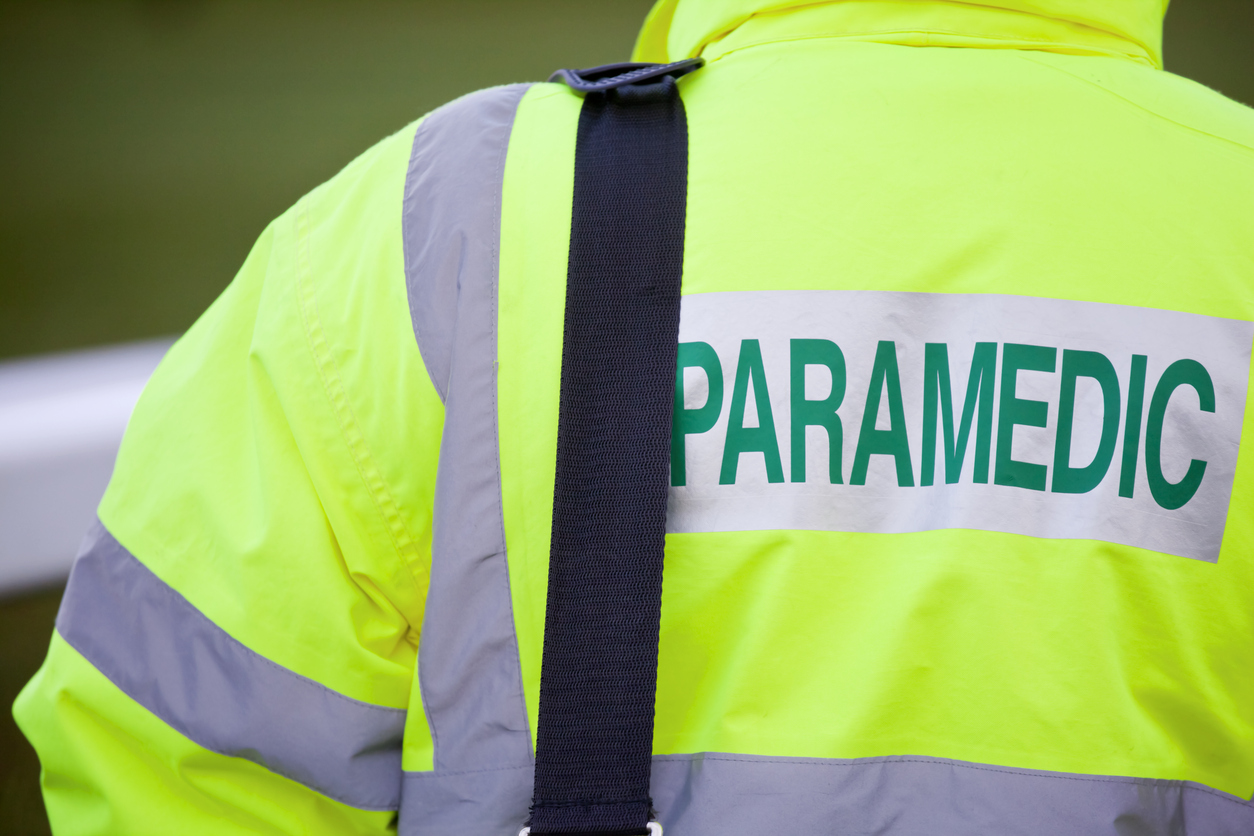Vince Clarke is a paramedic and a senior lecturer at the University of Hertfordshire. He has worked in education since 2001, first as a Practice Educator, then with the London Ambulance Service and in higher education, while continuing to practise at the same time. He is also an HCPC partner and Head of Endorsements for the College of Paramedics.
In this blog post, Vince discusses the challenges registrants face when something goes wrong, and why employers and regulators should be doing more to reassure professionals that openness is best for everyone.
I joined the ambulance service in 1996 and became a paramedic in 1998.
When I started, the attitudes among my colleagues were very “us and them” – the road staff versus management. It was a unionised setting where often, if something went wrong, the advice from your union representative would be: “Don’t say anything. Then they can’t get you.”
As the health service and the profession has developed, it’s become much more accepted that mistakes happen.
But health professionals still face challenges in being open and honest about their mistakes.
The number one barrier I see professionals struggle with is fear. Fear of action being taken against them, of disciplinary procedures, of regulatory action and striking off.

In the ambulance services, in particular, there is a perception that the investigatory process is a witch hunt. It’s slowly becoming more understood that investigations are there to look for the root cause of mistakes and prevent them happening again, rather than to look for someone to blame. But there is still a deeply embedded cultural fear among frontline staff.
To mitigate that, employers and regulators need to make it very clear that mistakes do happen and, if you do what you’re supposed to do, your mistake will be treated appropriately.
Openness is in everybody’s best interests
It isn’t just the responsibility of registrants to be open and honest, but also employers, education providers, and the regulator. We all need to do more to make sure issues are highlighted and patients are protected.
In the ambulance service, in particular, I think employers are sometimes too quick to tell individuals to self-refer. Employers need to be aware of when it’s appropriate, and understand what issues and concerns can be managed best locally.
The HCPC has produced some very helpful self-referral guidance for registrants which very clearly details the circumstances in which a self-referral is required. As with any guidance, it is up to the registrant to seek it out and act on it, rather than making a self-referral because their manager has told them to do so.
It comes down to professionalism and honesty. If you realise you’ve made a mistake, it’s important you’re brave enough to highlight it. And if a patient or another professional highlights something to you, you should have the insight to see where you’ve gone wrong and how you can improve.
Registrants feel scared to be open and honest when things go wrong, but service users really welcome it, and often their reaction can surprise those delivering bad news.
The foundation of a healthcare professional’s relationship with service users is trust. If a service user can be assured that you will be open and honest with them, explain what happened, apologise and take action to put things right, then they are likely to continue to trust you.
It’s where that doesn’t happen that problems can start.
What to do when something goes wrong
When things go wrong, service users, employers and the regulator want to make sure it won’t happen again, and so the key is recognising that you’ve made a mistake.
Once you’ve done that, you need to act on it.
For many professions, this means being upfront with the service user – explaining what has happened and any likely effects, and apologising.
In the environment paramedics work in, it’s not always easy or possible to communicate directly with the patient, particularly when potentially life-saving treatment is being given. In that situation, it becomes a matter of having the discussion with whoever you are handing the patient over to and then documenting the error and who you’ve informed of it.
In my experience with complaints and fitness to practise hearings, registrants who are open and honest find the process much more supportive, because they have demonstrated insight, honesty and professionalism. That starts with acknowledging your error.
Support is improving
In general, people are given more opportunity to discuss and reflect on what has happened these days, which helps make sure mistakes aren’t repeated. Unfortunately, these positive stories are not circulated as widely amongst registrants!

Talk it through with your team leader or clinical supervisor to identify the nature of the error and why it occurred. It might be that you didn’t know what you were doing, or it could be that the environmental factors were affecting you so greatly that you made an error.
Whatever it is, support can be put in place and, sometimes, you’ll be able to develop an action plan with your supervisor.
If you identify the cause was a lack of knowledge, you may be given more support with learning objectives and training to help you not repeat the error in future. Education and training departments are frequently involved in supporting individuals who have identified a training need.

